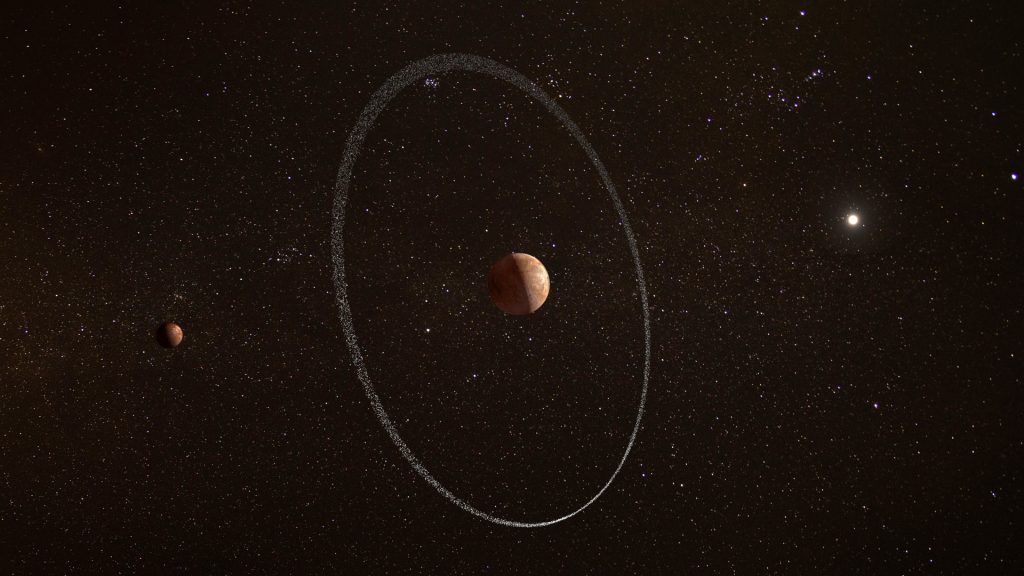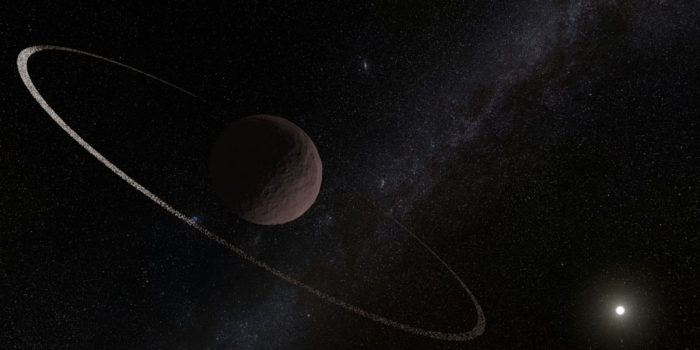Astronomers have made a remarkable discovery in the outer reaches of our solar system. They have spotted a ring around a dwarf planet called Quaoar. This discovery marks the first time that a ring has been observed around a dwarf planet, making it a significant milestone in the field of astronomy.
Quaoar is a small, icy body that is approximately 1,000 kilometers in diameter. Quaoar is only about half the size of Pluto and is located in the Kuiper Belt, a region of our solar system beyond Neptune that is full of small, icy objects. Until now, rings have only been observed around gas giants like Jupiter, Saturn, Uranus, and Neptune. This discovery around a dwarf planet like Quaoar is, therefore, a major departure from what was previously known about ring systems in our solar system.

The discovery was made possible by the use of an instrument developed by Dhillon and his colleagues in Spain called HiPERCAM as well as a fortunate occultation in which Quaoar passed in front of a bright background star, providing just enough illumination to make out its previously hidden ring, which appeared as two dips in the starlight.
The discovery of a ring around Quaoar is a significant development in our understanding of the evolution of our solar system. It suggests that rings may be a common feature of small, icy bodies in the Kuiper Belt and that they may have formed as a result of collisions or other processes in the early solar system. This discovery also has implications for our understanding of the processes that form and shape other small, icy bodies in our solar system.

In conclusion, the discovery of a ring around the dwarf planet Quaoar is a major milestone in the field of astronomy. It opens up new avenues for research into the evolution of our solar system and the processes that shape small, icy bodies in the Kuiper Belt. It is a testament to the power of the Hubble Space Telescope and the impact that continued investment in astronomical research can have on our understanding of the universe.


